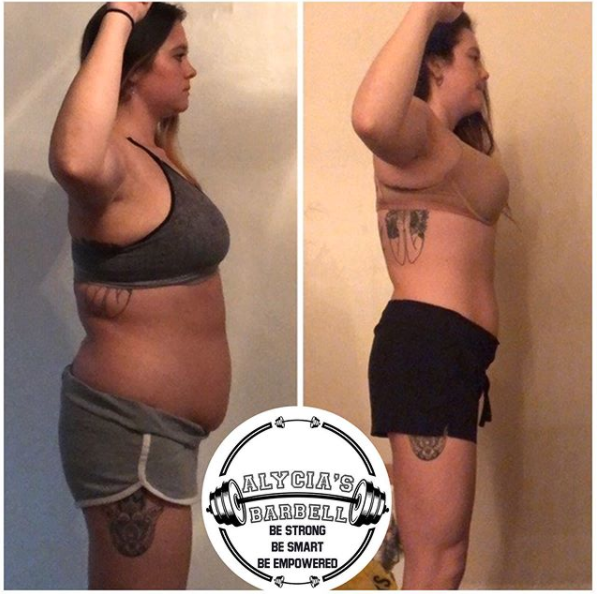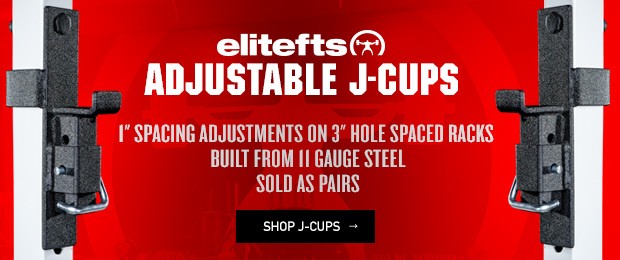
I have been running my online coaching business solely for almost exactly a year now. In previous years, it was one of three side hustles along with a full-time job. Yikes. Anyways, this past year I have made plenty of mistakes that I graciously learned from, particularly when it comes to money. Where I am now in terms of financial intelligence is leaps and bounds from where I started, but I am, of course, not a Certified Public Accountant (CPA), so do not take this article as financial advice. This is simply my story! And especially considering the current climate of our nation and financial insecurity, I wanted to share some really valuable tactics I learned along the way that have saved me thousands.
RECENT: From a Side Hustle to a Full-Time Job: Building Your Online Coaching Business
Get meticulous about tax write-offs.
When I first learned about tax write-offs as a business owner a few years ago, I honestly didn't take it seriously. I would keep some receipts but forget most of the time. It was a mess. I know many new business owners do the same, and it screws them come tax time. Remember, everything you write off (that is legit) is deducted from your gross income. That way, you are only taxed on that, versus your entire business revenue or gross. A few things here that will save you money:
- You can typically write off way more than you think. Hire a CPA and figure it out. Do not put your head in the sand with this one. No, Turbo Tax is not a CPA. Hire a human being who specializes in small businesses. Also, the law changes all the time. For example, in 2018, business owners were no longer allowed to write off entertainment. So, for example, I tried to write off a game of Top Golf I paid for when I went out with my business mentors, and my CPA caught it. Little shit like that is good to learn, and working with a professional makes a world of difference.
- Keep track of your write-offs quarterly, yet monthly is even better. If you wait until the end of the year, you have no idea where you are falling in terms of expenses. Keeping track early will help you and your CPA build strategy by the fourth quarter in terms of taxes. They can help you make purchases early for the following year if needed to bring taxable income down. But if you wait until the last minute, it essentially is what it is and you have no strategy to save you money.
- Keep your God damn receipts! I can count on at least one hand the number of business owners that say they just report a guestimate and have NO ACTUAL RECEIPT PROOF. This is not legal! If you get audited, you will be fined heavily. This is considered tax fraud. It's not a joke. You can't just guess here. Plus, if you are not keeping records there is a very good chance you are shortchanging yourself as well. Don't be lazy. It will cost you money in the end.

License your business correctly.
My first year in business cost me a shit ton in taxes. Granted, I was prepared for it because I did the math on my end, but it was still very gut-wrenching. I had no idea self-employment tax (which is 15.3 percent. 12.4 percent for social security, and 2.9 percent in Medicare) was even a thing until November 2019. And this is ON TOP OF income tax. Employees only pay a little over seven percent, and their employer pitches in for the rest. So yes, if you are self-employed, you pay DOUBLE. Granted by the time I learned this, I was the queen of write-offs, so my taxable income was very manageable, but again, had I learned the proper way to license my business early, I would have saved thousands in taxes last year.
Anyways, in November 2019, I learned about S-Corporations (which is just a type of LLC.) If you are a six-figure (or more) earner, licensing your business as an S-Corp can be very beneficial come tax time. Albeit, it is confusing, and you need to work with a CPA who also does payroll to pull it off. There is a lot of paperwork involved, you have to get approved, so it's a lot of work upfront but worth it. S-Corps are considered pass-through entities. Meaning the corporation itself is not subject to federal income tax. Instead, the shareholders are taxed upon their allocated share of the income. So essentially, as an S-Corp, I pay myself a monthly salary as well as quarterly draws. As an S-Corp, I only pay self-employment tax (social security/Medicare) on my salary, NOT my draws. Also, my wages (my salary and my coach's pay) are deducted from my income, which is another tax win. So, for example, say you pay yourself a $40K yearly salary and $20K in draws. You will only pay this tax on the $40K, not the $20K. Note this is all separate from income tax, but see where you can save a lot of money here? Seriously do the math. This can save business owners thousands in taxes each year. THOUSANDS.
The only tricky piece with the S-Corp filing is that you can't pay yourself a low salary if your business income is very high or if the typical income for your profession is high. If your business makes $500K a year yet your salary is 40K, the IRS will sniff that shit out. So it has to be "reasonable," but the criteria through the IRS is extremely vague. I suggest speaking to a CPA and see what makes the most sense for you. Being an S-Corp only makes sense once your profit hits a certain point compared to your expenses.
Keep business and pleasure separate.
When I first got started in my business, everything funneled through one bank account, and it was a nightmare in terms of keeping track of numbers. It wasn't until I officially became an S-Corp that I had to keep everything separate. Again this is pretty much a "duh…no shit" move, but you'd be surprised at how many business owners don't do this (including myself at first.) Create a separate business bank account, so you can truly see what is coming in and what is coming out. This will also set you up nicely if you choose to file as an S-Corp down the road. So you are probably wondering, "how will this save me money?"
It will save you money by creating more financial awareness. When I had all my money in one pot, I couldn't tell if my business expenses were getting out of hand or if it was my personal. It was just hard to keep track. But now, with everything separate AND I pay myself a salary, I can see exactly what I am spending my money on. This allows me to make smarter business purchases and save money.

Build your business credit.
So yet again, this is something I knew nothing about when I started. But just like you have personal credit, so can your business. It is important to be aware of this because with a good credit history in your business comes buying power. Did you know your business has its own credit score? Welp, I didn't. It is different than personal as it ranges from 0-100, but it's the same concept. Business credit store criteria include things like:
- Years in business
- Credit lines opened
- Payment history
- Any late payments
If you have solid business credit, you can apply for loans without a shit interest rate, and simply secure better rates and terms. This can also become very important for investing. This is yet another way to reduce taxes down the road and save money. Many business owners will invest through their business, not themselves. Let's use buying real-estate as an example. Say you buy real-estate through your business; you get taxed on this differently than if you owned it personally. You will save, yet again, a shit ton in taxes AND make passive income on the property. Say your business buys a house, and the tenants pay your business rent. The rent will be liable for Corporation Tax, which is HALF of the higher rate of income tax. Also, as of April 2020, mortgage interest will no longer be an allowable expense for individual property investors! But it will continue to be allowable for companies! Again, this is also why it is important to license your business correctly. Also, the more you reinvest back into your business via real-estate or other avenues, the more you will save on taxes yet again.
MORE: Add Online Training in 24 Hours: The Step-by-Step Plan
There is also a lot more to all of this—a lot more that I will continue to learn. But my main takeaway for you, if you are a new business owner, learn BUSINESS so you can keep your hard-earned money in your pocket. Especially with how much COVID has negatively impacted small businesses, now more than ever, you need to do your research. This, by far, has been the biggest learning curve for me. I had zero business/money education growing up, so I had to just figure it out as I went. So I hope sharing my experience has helped you! If you have any questions or ways you have saved money in your business, share them below in the comments!











We actually have a lot of readers who are gym owners an entrepreneurs. So hoping they catch this one for sure. But you are totally right! The little things pay off big in the end!
This is exactly the type of material 'meathead' (myself) business owners need.
Pragmatic and in language we can understand!